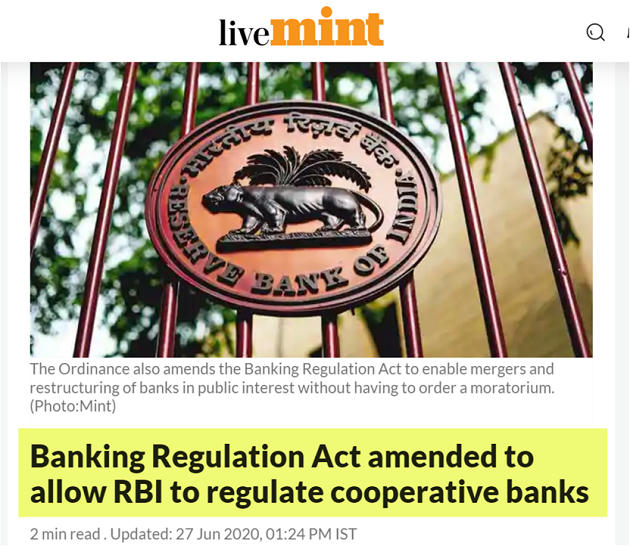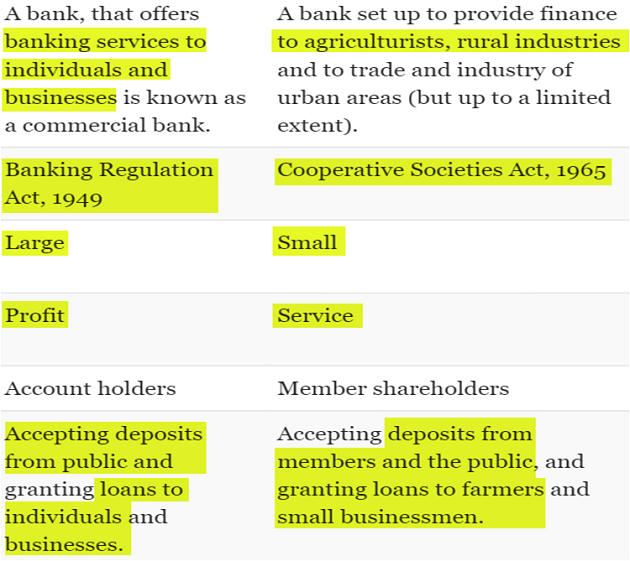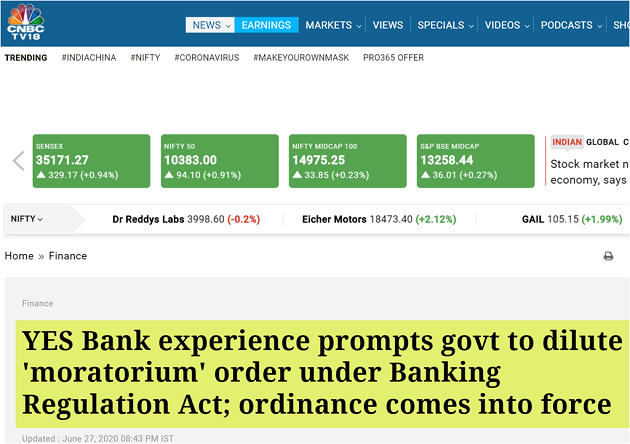Table of Contents


Commercial bank Vs Cooperative bank

- Interest rate on deposits in Cooperative banks are slightly higher
- Cooperative bank is governed by both banking and cooperative legislation, as they are registered under the Cooperative Society Act, 1965
- And regulated by National Bank for Agriculture and Rural Development (NABARD) & Reserve Bank of India (RBI).
- Banking laws were made applicable to cooperative societies in 1966 through an amendment to the Banking Regulation Act, 1949.
- Since then, banking related functions are regulated by the RBI
- And management related functions are regulated by respective State Governments.
- The amendments made to the Act will apply to-
- Urban co-operative banks & Multi-state co-operative banks
Main aim of the bill
- The Ordinance seeks to protect the interests of depositors and strengthen cooperative banks,
- By improving governance and oversight by extending powers already available with the RBI in respect of other banks
- The recruitment for the banks’ management will be based on certain qualifications.
- Appointment of the chief executive officer (CEO) will require prior permission from the banking regulator, as in case of other commercial banks.
- The audit of such banks will be as per the RBI guidelines.
- Also central bank can supersede the board, in consultation with the state government, if any co-operative bank is under stress.
- The Banking Regulation Act (amendment) Ordinance also enables cooperative banks,
- To raise money via public issue and private placement, of equity or preference shares and unsecured debentures,
- Subject to the central’s bank’s approval.

- The Banking Regulation (Amendment) Ordinance, promulgated by the President on Friday,
- Empowers the Reserve Bank of India to undertake revival plans for banks without imposing a moratorium to avoid disruption of the financial system.
- In case of Yes Bank, for instance, the government and the RBI first decided to put a moratorium which capped the amount of withdrawal by depositors.
- It was only after a few days that a new set of shareholders, led by SBI were put in the saddle.
- Over the years RBI has followed this practice.
What the ordinance does?
- The ordinance amends Section 45 of the Banking Regulation
- To enable making of a scheme of reconstruction or amalgamation of a banking company,
- For protecting the interest of the public, depositors and the banking system and for securing its proper management,
- Even without making an order of moratorium, so as to avoid disruption of the financial system.
Latest Burning Issues | Free PDF






















 WhatsApp
WhatsApp